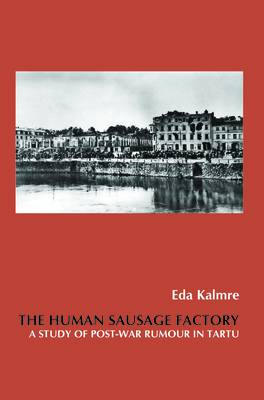
- Afhalen na 1 uur in een winkel met voorraad
- Gratis thuislevering in België vanaf € 30
- Ruim aanbod met 7 miljoen producten
- Afhalen na 1 uur in een winkel met voorraad
- Gratis thuislevering in België vanaf € 30
- Ruim aanbod met 7 miljoen producten
Zoeken
€ 98,45
+ 196 punten
Omschrijving
Under certain conditions, some rumours, which were established as part of folklore already long ago, may become fixed in the memory and the subconscious of several generations. This is what happened with the rumour about a human sausage factory after the Second World War. In Tartu, Estonia, this rumour obtained a symbolic meaning and power due to the politics of the totalitarian Soviet regime. The memories of the post-war period are still vivid in the collective mind, and the onetime rumour of sausage factories incorporates the population's tensions, pain, loss, choices, defiance and irreconcilability. The individual and community emotions that are brought to a focus in this discourse are an indicator of defining social boundaries and behaviour, of 'us' and 'them'. When describing the events that took place in Tartu, folklore becomes a powerful tool with which to construe the meaning of the era at the social level.
Through documents, photos and people's memories, the book offers an insight into the city of Tartu after the Second World War and reveals the several layers of meaning represented by rumour in this period.
Through documents, photos and people's memories, the book offers an insight into the city of Tartu after the Second World War and reveals the several layers of meaning represented by rumour in this period.
Specificaties
Betrokkenen
- Auteur(s):
- Uitgeverij:
Inhoud
- Aantal bladzijden:
- 190
- Taal:
- Engels
- Reeks:
- Reeksnummer:
- nr. 34
Eigenschappen
- Productcode (EAN):
- 9789042037175
- Verschijningsdatum:
- 1/01/2013
- Uitvoering:
- Paperback
- Formaat:
- Trade paperback (VS)
- Afmetingen:
- 155 mm x 234 mm
- Gewicht:
- 272 g

Alleen bij Standaard Boekhandel
+ 196 punten op je klantenkaart van Standaard Boekhandel
Beoordelingen
We publiceren alleen reviews die voldoen aan de voorwaarden voor reviews. Bekijk onze voorwaarden voor reviews.








